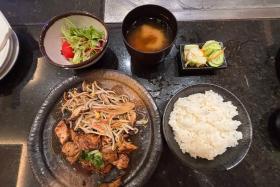Sellers taking it further with their own durian plantations
Eager buyers converged on the lorry, loaded with durians in large 50kg baskets, as soon as it stopped in front of Mr Michael Siow's hardware store in Balestier Road on July 14.
For Mr Siow, 54, it is the first harvest from his new durian venture - Titi Durian - to be sold in Singapore, two years later than planned because of the pandemic. The permanent resident has invested over $300,000 in the Singapore business and much more in his plantations back home in Malaysia.
Unlike most other durian wholesalers and retailers here, the businessman owns part of the plantations that supply Titi Durian, named after his Negeri Sembilan home town. It is rare for someone involved in durian sales and distribution here to invest directly in plantations. Most buy from wholesalers or plantations instead.
Mr Siow owns about 28ha to 32ha. Even then, only about a third of the supply is covered by his own harvest daily. The rest, about two tonnes' worth, has to be bought from neighbouring plantations.
It is a similar story for 99 Old Trees, a durian store in Owen Road. Singaporean Kelvin Tan, who manages it, said one of his business partners is a Malaysian who inherited a durian plantation in Raub, Pahang. About 15 per cent to 20 per cent of 99 Old Trees' supply comes from that nearly 11ha farm.
Raub is known for being prime Musang King territory. Plantation land there attracts a premium - around RM600,000 (S$193,000) for about 0.4ha even before planting anything, said Malaysian plantation developer Tan Hwa Chuan, 48.
Mr Kelvin Tan said: "A good plantation requires a lot of luck as there are many factors at play: A gentle slope, adequate water and quality soil are needed."
Yet water must not accumulate around the trees. The delicate balance makes durian one of the hardest crops to grow.
Challenges include the long time for trees to bear fruit - between three and five years. Even then, quality may vary and the trees are temperamental.
For both Mr Kelvin Tan, 37, and Mr Siow, cutting out the middleman with their own investments increases quality control while keeping prices affordable.
Mr Tan Hwa Chuan noted that Section 433B of the Malaysian land code prohibits foreign ownership of agricultural land.
However, there are still ways for Singaporeans to get in on the action.
"A Singaporean may first set up a company that processes durians, before using the company to sign a private lease for plantation land," said Mr Tan Hwa Chuan.
"A Singaporean fruit seller could also enter a joint venture with a plantation owner, and that would also help the seller 'lock up' some of their durian supply."
Get The New Paper on your phone with the free TNP app. Download from the Apple App Store or Google Play Store now


